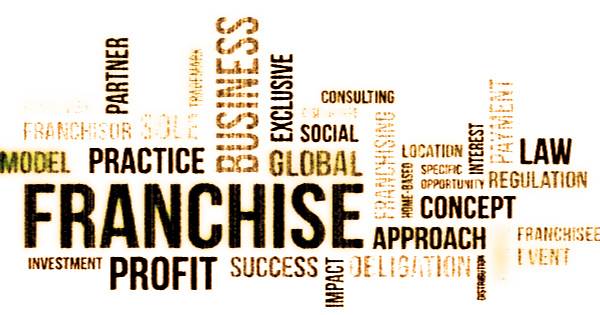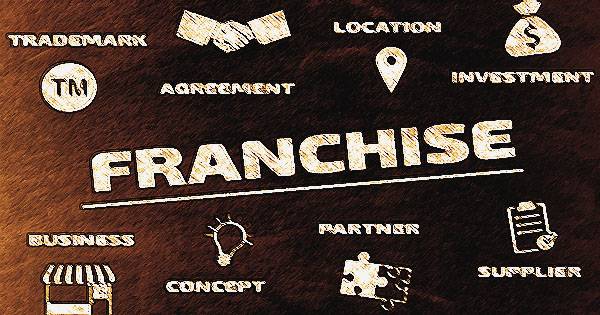A franchise (or franchising) is a form of license that gives franchisee access to the proprietary business information, processes, and trademarks of a franchisor, thus enabling the franchisee to market a product or service under the business name of the franchisor. According to the already defined franchisor’s requirements, franchising may require the creation and selling of a good or service. In fact, the agreement restricting the two gatherings is the “establishment”, however that term all the more regularly alludes to the real business that the franchisee works. All in all, the franchisor awards the franchisee the option to utilize its plan of action, including its image name, and offer its items and administrations to clients.
The brand and franchise scheme is most frequently referred to as franchising in the practice of establishing and selling. The franchisee normally pays the franchisor an initial start-up fee and annual licensing fees in return for purchasing a franchise. Franchising is a common instrument for the global scale of business practices and accounts for a significant portion of the U.S. industry. At the point when a business needs to expand its piece of the pie or geological reach with ease, it might establishment its item and brand name. “Franchise” is of Anglo-French deduction from the franc, which means free and is utilized both as a thing and as a (transitive) action word.
A franchise is a franchisor-franchisee joint venture. The franchiser is the original company. It is selling the right to use its name and its philosophy. Under an established business model and trademark, the franchisee purchases this right to market the products or services of the franchisor. Thusly, the franchisee doesn’t have to dispatch another endeavor without any preparation or spend assets on marking and promoting. Establishments are a well-known path for business people to begin a business, particularly when entering an exceptionally serious industry, for example, cheap food.

In a business format franchise, the franchisor not only provides the franchisee with its trade name, products, and services but also with a full business operating system. One big benefit of owning a franchise is that you have access to the brand name of an existing business. You won’t need to waste time on customers getting your name and services out. The franchisee for the most part gets site choice and advancement uphold, working manuals, preparing, brand norms, quality control, a showcasing system, and business warning help from the franchisor.
Franchising, particularly because of the legal advantages the franchisor has over the franchisee, is not an equal partnership. As stated in the contract, the franchisee shares a certain amount of sales (gross income) with the franchisor during the dealership. The fee is called a license fee or royalty. There are in excess of 785,000 establishment foundations in the U.S., which contribute nearly $500 billion to the economy. 36 nations have laws that expressly control diversifying, with most of all different nations having laws which have an immediate or backhanded impact on diversifying.
In reality, franchising is about the brand image of the franchisor, how the franchisor supports its franchisees, how the franchisee fulfills its obligations to provide goods and services to the brand expectations of the system, and, most importantly, franchising is about the franchisor’s relationship with its franchisees. Prior to getting tied up with an establishment, financial specialists should painstakingly peruse the Franchise Disclosure Document, which franchisors are needed to give. This report contains data about establishment charges, costs, execution desires, and other key working subtleties.
The brand of a franchisor is its most valuable asset and customers determine the company to shop at and how much to visit the company based on what they know about the brand or believe they know. It involves a lot of bureaucracy and complicated contracts because franchising is a contractual arrangement. The sophistication of the paperwork, however, differs among franchisors. Some of the more common services provided by franchisors to franchisees include:
- A recognized brand name,
- Site selection and site development assistance,
- Training for you and your management team,
- Research and development of new products and services,
- Headquarters and field support,
- Initial and continuing marketing and advertising.
A franchise deal is temporary, akin to a corporate lease or rental. It does not indicate the franchisee’s company ownership. Usually, the arrangement contains three payment types and the sums that the franchisee wants to pass to the franchisor.
- First, the franchisee buys from the franchisor company the regulated rights and intellectual property, paying a lump sum contribution or a one-time fee.
- Second, for delivering training, supplies, or business consulting services, the franchisor also receives payment.
- In the end, the franchisor receives royalties every month.
Franchise agreements usually last between five and 30 years, depending on the deal, with significant penalties if a franchisee breaches the contract or terminates it prematurely. The relationship between the franchisor and the franchisee is that of a manager and a consultant, where the franchisor provides the franchisee with advice on how to organize the company. In the agreement, each of the parties has a role to play and interests to protect.
Information Sources:
















